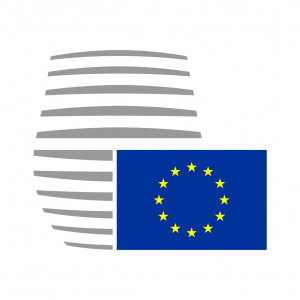
European Council
Conseil européen
Consejo Europeo
Europäischer Rat
Conselho Europeu
Consiglio Europeo
Europese Raad
Europaeiske Rådet
Europaeiske Råd
Eurooppa-neuvosto
Evropaiko Simvulio
Chomhairle Eorpach
Evropska Rada
Európska Rada
Európai Tanacs
Rada Europesjka
Evropski Svet
Euroopa Ülemkogu
Eiropadome
Europos Vadovu Taryba
Kunsill Ewropew
Europsko Vijece
Consiliul European
Search Open Yearbook
This information is part of the Open Yearbook, a free service of UIA's subscription-based Yearbook of International Organizations (YBIO). It includes profiles of non-profit organizations working worldwide in all fields of activity. The information contained in the profiles and search functionality of this free service are limited.
The full-featured Yearbook of International Organizations (YBIO) includes over 77,500 organization profiles, additional information in the profiles, sophisticated search functionality and data export. For more information about YBIO, please click here or contact us.
The UIA is a leading provider of information about international non-profit organizations. The aim of the Open Yearbook is to promote the activities of international non-governmental organizations (INGOs) and intergovernmental organizations (IGOs).
Contact Details
URL: http://www.consilium.europa.eu/
Facebook: https://www.facebook.com/eucouncil
Twitter: https://twitter.com/eucouncil
LinkedIn: https://www.linkedin.com/company/eucouncil
Founded
1974-12 Paris France
History
Available with paid subscription only.Aims
Determine the EU's general political direction and priorities - essentially setting the policy agenda for the EU.
Events
7 past events available with paid subscription only.Activities
Available with paid subscription only.Structure
Available with paid subscription only.Languages
Available with paid subscription only.Staff
Available with paid subscription only.Finance
Available with paid subscription only.Relations with Inter-Governmental Organizations
Receives an annual report from: E-XF2923 - European Central Bank (ECB). Cooperates with and on: F-XF4335 - European Economic and Monetary Union (EMU); F-XF0667 - European Parliament (EP); C-XC3005 - NATO.
Members
Available with paid subscription only.Type I Classification
Available with paid subscription only.Type II Classification
Available with paid subscription only.Subjects *
UN Sustainable Development Goals **
UIA Org ID
XE7976
** UN SDGs are linked to the subject classification.
← return to your search page to find additional profiles.
UIA allows users to access and make use of the information contained in its Databases for the user’s internal use and evaluation purposes only. A user may not re-package, compile, re-distribute or re-use any or all of the UIA Databases or the data* contained therein without prior permission from the UIA.
Data from database resources may not be extracted or downloaded in bulk using automated scripts or other external software tools not provided within the database resources themselves. If your research project or use of a database resource will involve the extraction of large amounts of text or data from a database resource, please contact us for a customized solution.
UIA reserves the right to block access for abusive use of the Database.
* Data shall mean any data and information available in the Database including but not limited to: raw data, numbers, images, names and contact information, logos, text, keywords, and links.